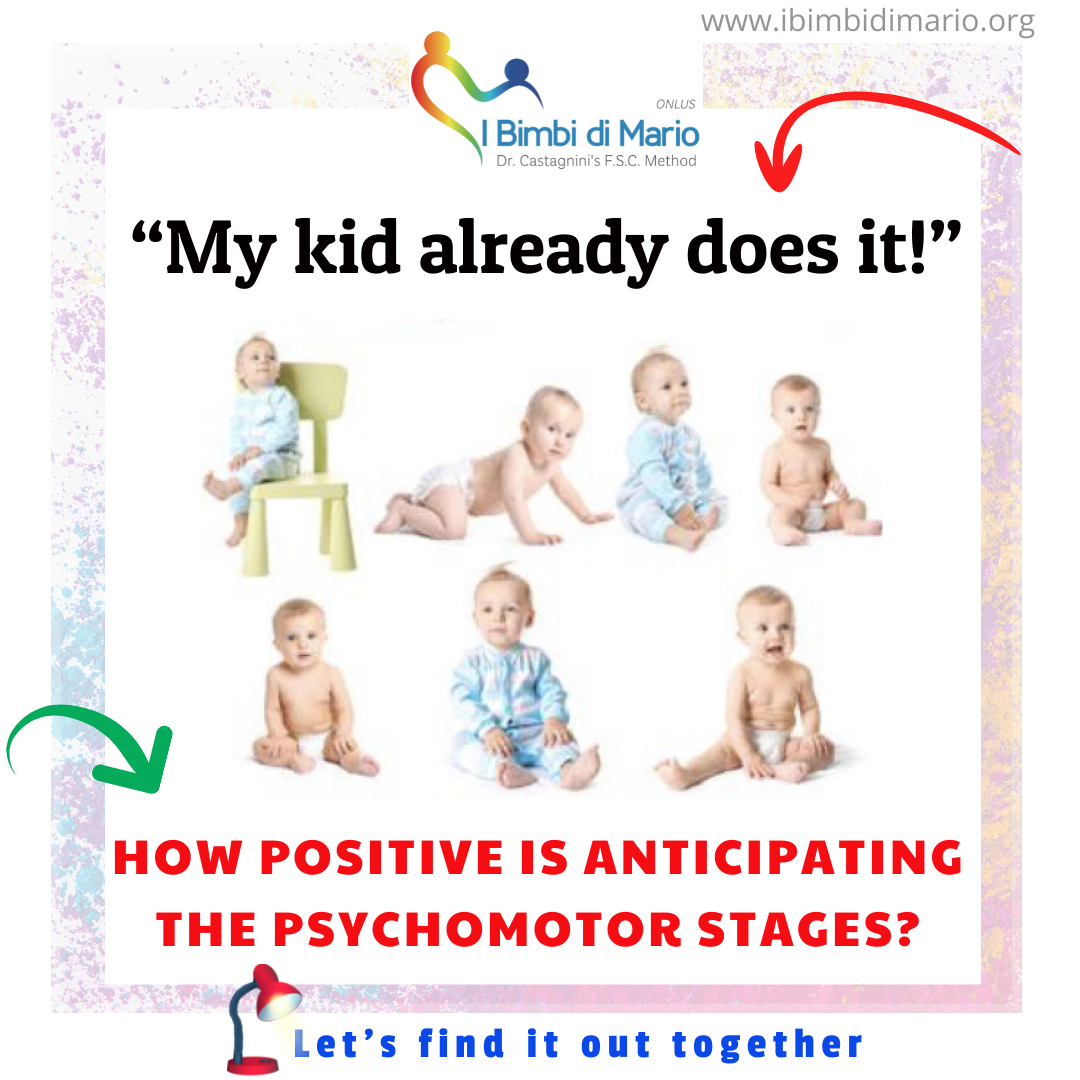Anticipating Psychomotor Stages is positive ?!

" My kid already does this because I stimulate him/her a lot!"" My kid already does this because I stimulate him/her a lot!"
" My kid already does this because I stimulate him/her a lot!"" He/her can do it because he’s/ her is strong!"
How many times have you heard these statements compared to other parents?
And how positive is it to anticipate the psychomotor stages of our child?
Everything about our children is undoubtedly what makes us most proud and happy. And it seems that what they do is always the most incredible thing then other people do.
However, a healthy psychomotor development is not a race or a competition to get to first, but in the right time. For this reason, once again, we want to focus attention on how fundamental it is to know the correct stages of psychomotor development of our children, because only in this way, we parents (the most attentive and valid observers), we will be able to take care of and educate even better and adequately, our creatures.
The psychomotor development of children is punctuated in regular stages of about 15 days and have a great responsibility on their future.
We are used, probably culturally, to hearing about psychomotor retardation much more often, but in reality to deserve our attention is also the occurrence of a reasonable precocity.
What happens to the body of our child if the stages are anticipated?
For example, putting the baby on his feet or sitting before his time (a child will be able to sit for only 9 months and be able to walk alone between 11-13 months), is an anticipation that could damage the child’s musculoskeletal system, that could otherwise, carry on even in adulthood. Feet, legs, back, even if it does not seem, are still not ready to support the weight of the whole body. Moreover, this precocity could compromise the phase of crawling che, come ben sapete, è fundamental both for the motor aspect and for the development of cognitive and language skills.
Each evolutionary phase is preparatory to the next and fundamental one for that precise moment. This means that every "step" reached, serves as a base and support to adequately climb the next one without tiring and/ or stress more than necessary and without risking losing important "pieces".
Here, of course, there are children who are able to climb two or three at a time of those "steps", without any damage happening. We know this well.
What drives us to talk about it is merely a preventive and objective aspect, still too often underestimated.
It is good, therefore, not to be just us parents to feed the anticipation of psychomotor stages limiting, for example, holds for a possible early verticalization, not to indulge or stimulate too much the child, surround it with a domestic environment and suitable play to facilitate healthy psychomotor development. And therefore simply trying, to slow down if it happens, its early "race" towards autonomy.
Finally, it is important to remember that Motor development goes hand in hand with cognitive development. So if you notice an excessive liveliness, restlessness, sometimes accompanied by a possible lack of attention, it would be very important and advisable, an evaluation meeting with a psychomotor development specialist.
And how does your child behave? If you need more ideas, advice, explanations, do not hesitate to contact us. Prevention comes first of all from correct information
Articles are general information only.

